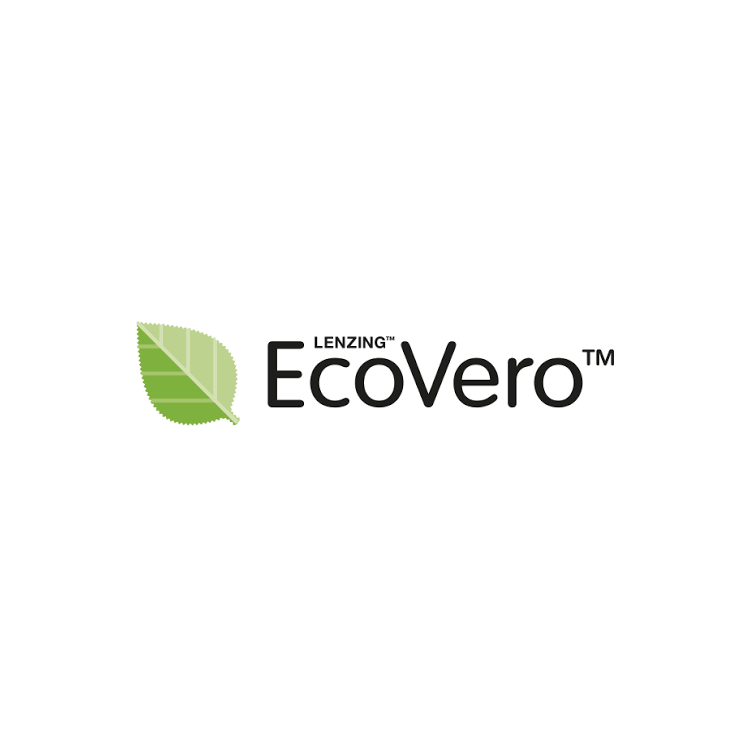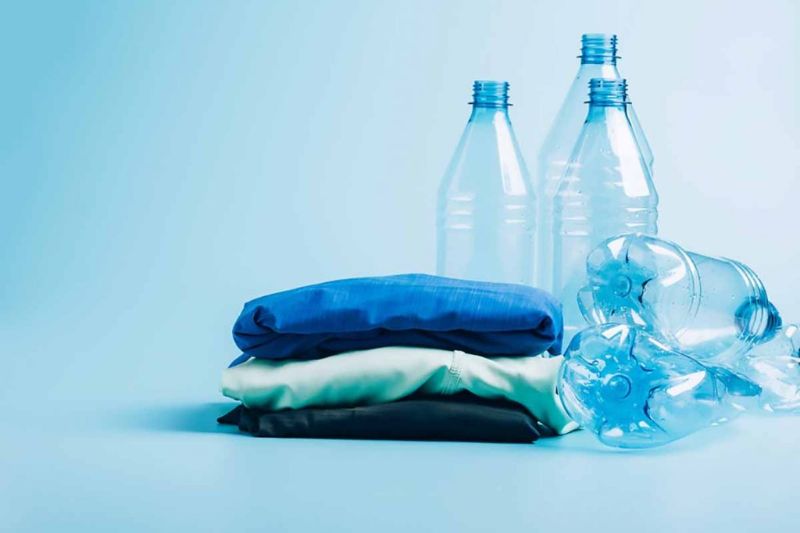 Data dell`ultima modifica: 2023-05-29
Data dell`ultima modifica: 2023-05-29
What’s LENZING™ ECOVERO™
Derived from certified renewable wood sources using an eco-responsible production process by meeting high environmental standards, LENZING™ ECOVERO™ fibers tailor to a sustainable lifestyle, contributing to a cleaner environment.
eco-responsible production: the next milestone in Lenzing’s sustainability journey
The introduction of LENZING™ ECOVERO™ branded Viscose fibers marks a new milestone in Lenzing’s sustainability journey. LENZING™ ECOVERO™ branded Viscose fibers give you confidence your fashion choices are environmentally responsible and have a low environmental impact.
LENZING™ ECOVERO™ Viscose fibers are derived from sustainable wood and pulp, coming from certified and controlled sources.
LENZING™ ECOVERO™ fibers have been certified with the EU Ecolabel as meeting high environmental standards throughout their life cycle: from raw material extraction to production, distribution and disposal.
LENZING™ ECOVERO™ fibers can be robustly identified in the final product, assuring you that your purchase contains genuine ECOVERO™ Viscose fibers.
key benefits
up to 50% lower emissions & water impact than generic viscose
The manufacturing of LENZING™ ECOVERO™ fibers generates up to 50% lower emissions and water impact compared to generic Viscose.
sustainable wood and pulp sourcing/procurement
ECOVERO™ fibers are produced using pulp, which is derived from the renewable resource wood as raw material. Lenzing purchases wood and pulp derived from responsibly managed forests and certified to come from sustainable sources.
supply chain transparency
A special manufacturing system enables LENZING™ ECOVERO™ branded Viscose fibers to be identified in the final product, even after long textile processing and conversion steps through the value chain. Environmentally conscious consumers can be assured that retailers and brands are incorporating genuine LENZING™ ECOVERO™ eco-responsible Viscose in their products.
certified eco-responsible
You can be assured that your fashion choices are sensitive to environmental concerns. Manufactured only from certified and controlled wood sources and produced with significantly lower fossil energy use and water than generic viscose, LENZING™ ECOVERO™ branded Viscose fibers are certified with the internationally recognized EU Ecolabel. This label of environmental excellence is only awarded to products and services, which have a significantly lower environmental impact throughout their lifecycle: from raw material extraction to production, distribution and disposal.
TOGETHER FOR A CLEAN OCEAN
The SEAQUAL Initiative challenges plastic pollution and helps to clean our oceans of Marine Litter, helping society move towards a circular economy. The SEAQUAL Initiative is a unique collaborative model involving NGOs, Fishermen, Researchers, Scientists, Authorities and Private Stakeholders to clean the Ocean floor and surface, rivers and estuaries, beaches and coastlines. Become a SEAQUAL Licensee and join our fight against Marine Litter.
SEAQUAL Licensee Benefits
Collaborating with the SEAQUAL Initiative allows you to help in building a better future for all of us.
Only SEAQUAL Licensees can produce, buy or sell products containing Upcycled Marine Plastic. SEAQUAL® YARN is a 100% recycled material with full traceability (DNA tracer inside). This certification forms part of an exclusive licensing system created by the SEAQUAL Initiative.
Refibra™ fiber – Lenzing’s initiative to drive circular economy in the textile world
Lenzing – Lenzing achieved another milestone in its innovation heritage in the textile industry by developing a new fiber based on cotton scraps and wood. The Refibra™ fiber is the first cellulose fiber featuring recycled material on a commercial scale and was launched today at Première Vision textile fair in Paris. The fiber is produced in the lyocell production process. The lyocell fiber TENCEL®, already a market success as an eco-friendly fiber, is now achieving another key milestone by creating from natural resources what is likely the most sustainable fiber. The Refibra™ fiber from cotton scraps and wood will further build Lenzing's reputation as a leader in the field of environmental fiber technology and will push new solutions in the textile industry towards circular economy by recycling production waste.
"For Lenzing, developing circular business models in the fashion industry ensures the decoupling of business growth from pressure on ecological resource consumption. It reduces the need to extract additional virgin resources from nature, and reduces the net impact on ecological resources," explain Stefan Doboczky, CEO of Lenzing Group and Robert van de Kerkhof, CCO.
Refibra™ fiber - Reborn TENCEL® fiber
The new TENCEL® generation Refibra™ stands for "Reduce, Reuse and Recycle". "The brand name Refibra™ and the claim 'Reborn TENCEL® fiber' illustrate immediately that this new kind of fiber is made of recycled materials promising reduced reliance on natural raw materials. Because the Refibra™ fiber is based on the lyocell production process, which has been internationally recognized for its environmentally responsible closed loop production process, the Refibra™ fiber offers a deep sustainability profile that clearly contributes to circular economy," van de Kerkhof explains.
Refibra™ fiber with identification
Transparency becomes more and more an issue in the textile industry to prove for example material origin. To assure customers that the fiber, made from recycled material, is really in the textiles, Lenzing has developed a new identification system. The system makes it possible to identify the Refibra™ fiber in the finished textile. This guarantees transparency in the overall processing chain. The Refibra™ fiber itself is part of the global Lenzing Branding Service and the brand is licensed once the textile has undergone a certification process.
International partnerships for circular economy
"Close cooperation with leading companies who attach particular importance to sustainability is a pre-requisite for a successful market launch," van de Kerkhof comments. "These pioneering companies offer the possibility of jointly developing concepts that contribute to a more sustainable fashion industry and promote the circular economy in this sector as well."
For a better planet
The need for clothing will have doubled by the year 2025. This amount of clothing signals a major burden for our environment. 80 percent of the clothing we throw away ends up in landfills. An estimated 50 million tons of clothing are thrown away every year. "TENCEL® itself is an environmentally responsible fiber of botanic origin. With the Refibra™ fiber, we add to the future of manufacturing and start to reassess waste as resource. The target is to close the loop. We will not stop our innovation before we are there," van de Kerkhof said. "Lenzing is working for a better planet."


